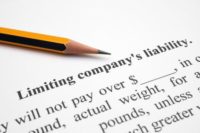
Law Office of Ryan C. Young, PLLC
Virginia Trial Lawyer
www.novaesq.com
Tel. (703) 896-7667
Hearsay definition
Hearsay is evidence based not on a witness’s personal knowledge, but on another’s statement that was not made under oath. Hearsay is usually not allowed in court as evidence. This exclusion is termed the ‘hearsay rule.’
For instance, if a witness states that “Sandy told me she saw the dog bite the little boy” as his evidence to the fact that the dog bit the boy, this is hearsay. The witness is not offering personal knowledge of this fact, which makes it hearsay. However, if he states that, he saw the dog bite the little boy; his testimony is now admissible evidence, because he actually witnessed the dog bite the boy.
Why Hearsay is Not Admissible
The U.S. Constitution’s Sixth Amendment states that, “In all criminal prosecutions, the accused shall enjoy the right…to be confronted with the witnesses against him.” This means that the accused citizen is assured the right to face his accuser. Hearsay places the accuser somewhere other than in the courtroom. Therefore, the accused isn’t able to face his accuser. This makes the admittance of hearsay as evidence, in the majority of criminal cases, unconstitutional. The rules are nearly identical for civil trials.
There is also evidence that suggests the unreliability of an eyewitness. How unreliable do you think the second or third-hand information will be? Many children played the telephone game in school, as the whispers move down the line, the story changes and the end story is different from the original story that was told. This is an example as to why hearsay is frowned upon in the courts. While hearsay may be potentially accurate, there is no way of knowing when it is and when it isn’t. Further, the law recognizes that a judge or jury should be able to view a witness’s body language and manner to determine whether they are telling the truth.
Why You Should Care
The problem is that the jury will make their decision based on testimony that is offered. If inaccurate hearsay evidence is offered, the jury cannot make a decision based on facts.
Planning for Trial
Properly planning for your trial is one of the most important things you will ever do. Ensuring that you have proper representation is essential to increase the chances of
success in your case.
An experienced trial attorney will know the law as it relates to your case and have the ability to answer your questions in a timely manner.




